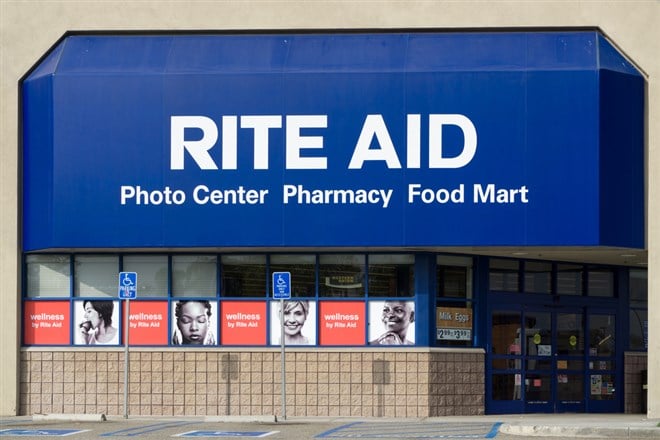
Rite Aid (NYSE:RAD) needed to deliver some magic to investors. A strong earnings report would have helped. Instead, the beleaguered pharmacy chain tried its best to put a happy face on a lousy earnings report. Unfortunately, that’s a familiar tune that sends a sour note to investors.
In September 2020, several experts viewed the stock as a cautious buy largely due to its role as an essential partner in COVID-19 testing and vaccinations.
However, even by the end of 2021, the company’s lack of growth was evident. It was playing defense but would have to show investors how it could grow revenue.
Declining sequential and year-over-year revenue and earnings in the last two quarters does not give investors much to hope for. Will Rite Aid stock ever recover?
Concerns Re-Emerge About the Company's Debt
Back in 2017, Rite-Aid sold about half of its stores to Walgreens Boots Alliance (NASDAQ: WBA) for $4.375 billion. The company needed the deal to help reduce what was at the time a debt load of around $7 billion.
The company reported a debt load of about half of that (approximately $3.2 billion) at the end of the last quarter. The company’s own documents show that it has no debt due until 2025 with $ 1.85 billion in liquidity. The company even expresses optimism that it will be free cash flow positive in 2023.
But the company’s revenue is down significantly from 2017 levels. On the one hand, it makes sense because the company has fewer stores, but if it used a significant portion of the $4.3 billion to pay off debt, the math still suggests that the company is still struggling to generate revenue while it... wait for it... closes more stores.
It may be a necessary strategy, but at some point, the company will have to show that it can play offense.
The Elixir Isn’t Working
Part of the company’s growth plan was going to be from Elixir, the company’s pharmacy benefits manager. So far, Elixir hasn’t been a magical solution unless the magic involves making $252 million disappear.
That’s the amount the company took as a goodwill impairment change in the quarter based on what the company termed “a change in our estimate of lives for next year.”
Put another way, revenue for Elixir decreased by 9% ($171 million). The unit did increase its profits as measured by EBITDA to $47.1 million from $36.8 million. However, it did so because of an improvement in operating expenses — in other words, more defense.
RAD Stock Needs to Show Investors More
The two analysts tracked by MarketBeat give RAD stock a "sell" rating. Other analysts forecast about a 40% "buy" rating. Even in this market, having such a negative sentiment about a stock can tell you a lot.
Rite Aid is facing an uphill battle as competition grows and margins become tighter. The stock is cheap, but sometimes stocks are cheap for a reason. Unless Rite Aid can show that it has a more solid strategy in place, investors may want to stay away.

